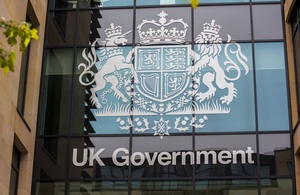
UK aid and Unilever reach one billion people with global hygiene campaign to tackle Covid-19
One billion people in developing countries have now been reached with advice, hygiene products and access to handwashing facilities in a campaign launched between the UK government and British business Unilever to reduce the spread of Covid-19.
Working through the UN, charities and other partners, the campaign has:
Trained 140,000 staff, including community health workers and teachers, to deliver hygiene skills, including deep cleaning of public buildings and effective handwashing.
Installed over 500,000 handwashing stations around the world, including in Bangladesh, as well as health care facilities in Iraq.
Run information campaigns across TV, radio and social media in 37 countries to increase understanding of the benefits of handwashing with soap regularly and disinfecting surfaces to prevent the spread of Covid-19. These campaigns have also reached refugees living in some of the world’s worst humanitarian crises, such as South Sudan and Cox’s Bazar in Bangladesh.
Delivered 75 million Unilever hygiene products, more than three times the original target, to 60 countries, covering South America, Europe, Africa, Asia, South East Asia and the Middle East. These have been donated by Unilever’s leading hygiene brands, including Lifebuoy and Domestos.
The UK has been leading the international response to the Covid-19 pandemic, helping to develop and distribute vaccines support the global economy and bolster health systems around the world. As one of the largest donors to the COVAX AMC, the UK is also helping stop the spread of the disease through global vaccinations. The scheme has reached 100 countries so far.
The Prime Minister has also confirmed the UK will share the majority of any future surplus coronavirus vaccines from our supply with the COVAX procurement pool to support developing countries.
Foreign, Commonwealth & Development Office Minister Wendy Morton said:
This global hand washing campaign has saved lives and protected some of the most vulnerable communities around the world against Covid-19 and other diseases.
No one is safe until we are all safe. That is why the UK has also provided £548 million for COVAX to deliver more than one billion vaccines around the world, as well as lobbying international partners to increase their funding.
As well as the UK Government and Unilever, the campaign, funded by UK aid and Unilever, is also supported by experts from the London School of Hygiene & Tropical Medicine and 21 partners including UNICEF and the United Nations High Commissioner for Refugees who are helping governments around the world on their own Covid-19 responses.
Charities and international organisations have developed new tools to communicate how Covid-19 is spread. Population Services International developed a WhatsApp chatbot to send new training to health workers while remaining socially-distanced and safe.
Rebecca Marmot, Chief Sustainability Officer at Unilever, said:
Our business has a century-long history of promoting hygiene through our brands, but this unprecedented crisis called for an unprecedented response.
Public-private partnership has been critical, allowing us to leverage the influence, expertise and networks of both government and business, and our strong network of NGO and UN partners, at home and overseas. We’re pleased to work together with partners to implement initiatives to address the pandemic at scale.
Robert Dreibelbis, from the London School of Hygiene & Tropical Medicine, said:
Handwashing and hygiene are among the most effective ways to help prevent the spread of many diseases. The COVID-19 crisis has shown the important role that hygiene plays in health. Our hope is that this recognition of the vital role of hygiene continues at scale as a key part of COVID-19 recovery.
